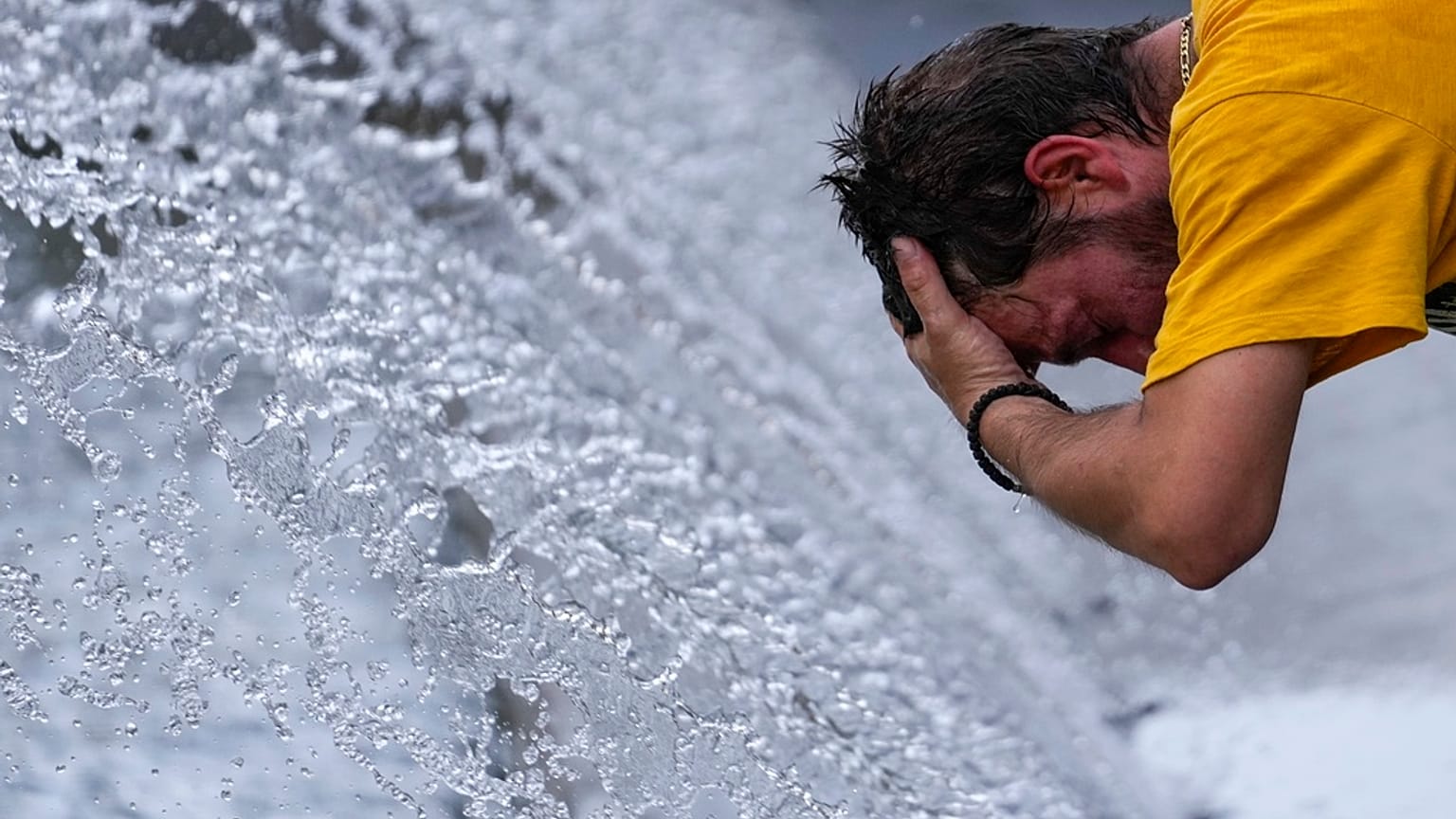Serbian farmers are feeling the effects of climate change on this year's crops as extreme heat follows flooding.
Temperatures are soaring across Europe, and Serbia is no exception. Spurred on by climate change, temperatures shot up above 40 degrees Celsius last week and are expected to stay high throughout this week.
 ADVERTISEMENT
ADVERTISEMENT
 ADVERTISEMENT
ADVERTISEMENT
The heat is creating a desperate situation for farmers who, just two months earlier, were dealing with major flooding.
The country has experienced "absolute extremes in terms of both drought and the amount of water that we've had," Serbian farmer Dejan Ivanišević tells Euronews. "Believe me, I absolutely do not understand what is happening."
Last month, heavy rains created a lake on parts of Ivanišević's land where he used to plant corn and soybeans. Now the rising temperatures have made the situation worse, souring a profession that Ivanišević loves.
"I'm absolutely starting to lose my will," he adds. "I primarily worked the land because I enjoy it, I love it... It's very nice to produce with your own hands... to feed at least your village or your family."
Experts warn extreme weather - including sizzling temperatures - will continue for years to come as people add more planet-warming gases into the atmosphere.
According to Euronews meteorologist Milena Lazarevic, over the past decade, there were on average around three heatwaves every year.
"Now we have already had five. Then the amount of rain of 50 litres per square metre, which used to be what we'd see for the whole of June or July, now falls on average in 12 hours."
Because of this new climate, Dejan expects to make just enough money this season to invest in more seeds for the next harvest, hoping that it will be more successful than this year.
Watch the video above to learn more.














